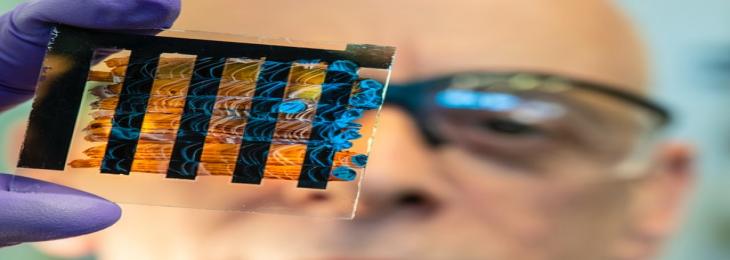New Study Shows Perovskite Solar Cells Are More Effective When a Chili Compound Is Added To Them
Apr, 2021 - By SMI

Share
A drop of capsaicin, a chemical compound, could be a secret ingredient for more effective and durable perovskite solar cells, according to researchers from China and Sweden.
Capsaicin was sprinkled onto the precursor of methylammonium lead triiodide (MAPbI3) perovskite during the production process, which resulted in a larger quantities of electrons to total consumption at the semiconductor's surface, according to the report, which was published in the journal Joule on January 13th. The inclusion occurred in a most effective charge transport in polycrystalline MAPbI3 solar cells to date. Metal halide perovskites, as successful as they are, still have some kinks to work out. Non-radiative recombination is a problem that arises when errors in the crystal structure interact with electrons going around, turning their energy into heat and decreasing total performance. Capsaicin seemed to suit the bill when the team was searching for a natural additive to help them solve this challenge.
"A strong trend in non-toxic lead-free perovskite materials would be green and sustainable forest-based biomaterial additive manufacturing in the future," says Qinye Bao, a senior author of the study from East China Normal University. "We're planning to grow a completely green perovskite solar cell as a renewable energy source as a result of this.”
Capsaicin was applied to a precursor of methylammonium lead triiodide (MAPbI3) perovskite at a concentration of just 0.1% by weight. The researchers discovered that perovskite solar cells made with the compound had a power conversion efficiency of 21.88%, which was better over the 19.1 percent used in control systems. Their reliability increased as well, however after 800 hours of storage in ambient air, they were still working of around 90% of their original performance. “Capsaicin improved charge transfer by reducing the density of defects in the perovskite film and providing a smoother interface between the various semiconductor layers,” according to the researchers, “further research is required to see how well capsaicin functions in other forms of perovskite solar cells.”
Share
Stratagem Market Insights
533 Airport Boulevard, Suite 400, Burlingame, CA 94010, United States
Delivery Center
403, 4th Floor, Bremen Business Center
Aundh, Pune, Maharashtra 411007
India
